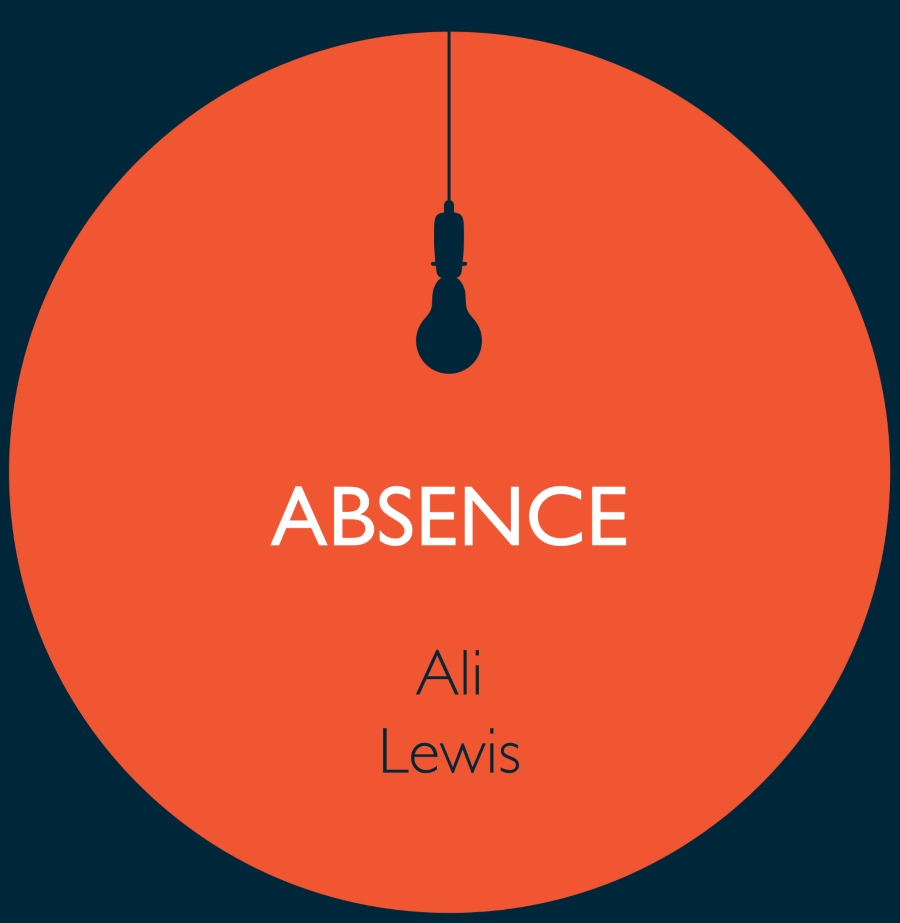
Ali Lewis, Absence (CHEERIO, 2024)
Absence by Ali Lewis is ‘a book about nothing’. So, what is a book about nothing really about?
From the opening pages, nothing expands and explodes. Absence is about ‘nothings’, resolutely plural in all the contradictions of that word. Its main characters are ‘losses, vacua, gaps’.
Anchored (loosely) around the poem’s central rod – ‘Rules for Comedy’ – the collection dips and dives into these holes. It offers non-whole glimpses of something both bigger and smaller than itself; it teases and riddles and returns again and again to absence. Some of the poem’s rules are questions. ‘Did I tell you I found a body once?’ he asks. ‘Did I make that up, or is it true, or both?’
Comedy is certainly both. Something that is funny is humorous and strange, deceitful and somehow truer than any sermon or lecture. ‘In comedy, you’re judged if what you say didn’t happen,’ says the poet near the end of ‘Rules for Comedy’. How about in poetry?
In ‘The Body Politic’, upon seeing the frontispiece of Hobbes’ Leviathan in the British Library – ‘an etching of a king, | artfully restored’ – the poet remarks:
I’m reminded of what I know
but don’t often think about: that I am a host
as well as a host, that even within
me, there is no necessary unity between
the parasites, the fungi, the cells splitting
like sects, the bacteria on my finger that touches
the glass above the book, which tells me,
now I am not all together at peace with myself
Knowing and not knowing, thinking and forgetting, the poet is a contradictory bundle of mind, body and book. Like the king’s restored form, the poet is constantly re-creating and refining. He has the tools for scrubbing: ‘the diamond grit | of mud and metal sludge you need to hone | fine work’ (‘The Knife Sharpener’).
In the section above, the poet is reminded, in a roundabout way, that the body is not finished. Indeed, the body, with its invisible cells, fungi and parasites is never “one piece” but a profusion of absences: how could anyone be at peace in such a diverse vector, one that contains so many multitudes, one that tries to stitch such different pieces together?
As well as a lack of personal peace, the book (and body) opens out to greater suffering. This is where Absence excels. In a ‘book about nothing’, the poet does not retreat into himself and dwell on existential dread. Nor does the collection exist only in abstraction. Instead, it confronts (and challenges) some of the world’s many cruelties.
For example, in ‘The Chick Sexer’, he remarks upon the commercial egg industry’s appalling practice of killing male chicks within days of being born. Billions of day-old chicks are fed through a macerator because, by virtue of their sex, they have no worth to the humans who have bred them into existence. How could any body be at peace seeing the millions of tiny pieces these bodies are torn into?
As Absence attests, things that aren’t there can be the most haunting. The missing piece is compassion. In Lewis’ hands, absence is not a refuge from the world but a means of seeing the world more clearly.
Ali Lewis, Absence (CHEERIO, 2024)

